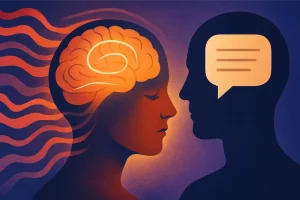Abstract
N, N-dimethyltryptamine (DMT) is an indole alkaloid produced by a number of plants and animals, including humans. Its psychoactive effects were first described in 1956 by Stephen Szára, but have been exploited for centuries by South American indigenous populations in the form of ayahuasca. In the present review, we assess the state of the art regarding a putative role for endogenous DMT and potential clinical applications of ayahuasca and DMT. A review assessing the pharmacological profile of DMT and its clinical effects in humans was performed using the PubMed data base until 5 August 2018 with the words: ayahuasca and N,N-dimethyltryptamine. While the role of endogenous DMT remains unclear, ayahuasca has promising results in anxiety, depression and substance dependence. Since ayahuasca has a good safety profile, it is crucial to conduct further research aimed at developing new treatments for psychiatric disorders.
Rodrigues, A. V., Almeida, F. J., & Vieira-Coelho, M. A. (2019). Dimethyltryptamine: endogenous role and therapeutic potential. Journal of psychoactive drugs, 1-12., https://doi.org/10.1080/02791072.2019.1602291
Link to full text
Rodrigues, A. V., Almeida, F. J., & Vieira-Coelho, M. A. (2019). Dimethyltryptamine: endogenous role and therapeutic potential. Journal of psychoactive drugs, 1-12., https://doi.org/10.1080/02791072.2019.1602291
Link to full text













